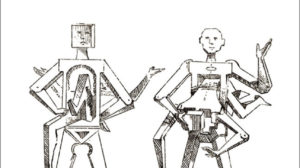L’Ocse ha rilasciato uno studio sul contributo della proprietà intellettuale alla formazione del capitale e alla crescita nelle economie sviluppate. Scoprendo che la quantità di capitale basato sulla conoscenza e protetto da brevetto o copyright è in crescita e la sua quota resiste alla crisi. Lo studio è online.
Secondo l’Economist, però, non c’è alcuna prova a sostegno dell’idea che il sistema dei brevetti alimenti l’innovazione. E anzi sussiste qualche dubbio. Soprattutto quando i brevetti servono a frenare l’innovazione dei concorrenti che a implementare la propria. Il pezzo è online.
Internet ha reso più difficile proteggere il copyright e ha accelerato tanto l’innovazione da favorire coloro che creano nuovi prodotti e li lanciano sul mercato proteggendo la loro proprietà intellettuale più con la velocità rispetto ai concorrenti che con i brevetti. Nello stesso tempo ha spinto i detentori di copyright a chiedere e ottenere estensioni del loro diritto e ha trasformato i brevetti in strumenti di difesa e attacco strategico nei confronti dei concorrenti più sul piano legale che su quello industriale.
D’altra parte è chiaro che la relazione tra investimenti finanziari e proprietà intellettuale è positiva: la finanza preferisce dedicarsi a imprese che possano dimostrare in qualche modo oggettivo che la loro capacità di generazione di conoscenza è incarnata in qualche forma di diritto difendibile. E per questa via i brevetti finiscono effettivamente per aiutare l’innovazione.
La crescita e l’innovazione sono collegate, su questo non ci sono molti dubbi. Ma la gestione della proprietà intellettuale non è collegata in modo certo con la crescita. È piuttosto collegata alla distribuzione della ricchezza generata dalla crescita.
Ma la ricerca in questo settore è ormai molto ampia. E la relazione tra internet e proprietà intellettuale è indagata dal punto di vista teorico e attraverso varie sperimentazioni. Esperienze fondamentali come i creative commons hanno cambiato lo scenario. Ma ancora non è abbastanza.
Vale la pena di seguire lo sviluppo della ricerca. E questo paper aiuta:
IP in a World Without Scarcity
Mark A. Lemley
Stanford Law SchoolMarch 24, 2014
Stanford Public Law Working Paper No. 2413974
Abstract:
Things are valuable because they are scarce. The more abundant they become, they cheaper they become. But a series of technological changes is underway that promises to end scarcity as we know it for a wide variety of goods. The Internet is the most obvious example, because the change there is furthest along. The Internet has reduced the cost of production and distribution of informational content effectively to zero. In many cases it has also dramatically reduced the cost of producing that content. And it has changed the way in which information is distributed, separating the creators of content from the distributors.More recently, new technologies promise to do for a variety of physical goods and even services what the Internet has already done for information. 3D printers can manufacture physical goods based on any digital design. Synthetic biology has automated the manufacture not just of copies of existing genetic sequences but any custom-made gene sequence, allowing anyone who want to create a gene sequence of their own to upload the sequence to a company that will “print” it using the basic building blocks of genetics. And advances in robotics offer the prospect that many of the services humans now provide can be provided free of charge by general-purpose machines that can be programmed to perform a variety of complex functions. While none of these technologies are nearly as far along as the Internet, they share two essential characteristics with the Internet: they radically reduce the cost of production and distribution of things, and they separate the informational content of those things (the design) from their manufacture. Combine these four developments – the Internet, 3D printing, robotics, and synthetic biology – and it is entirely plausible to envision a not-too-distant world in which most things that people want can be downloaded and created on site for very little money.
The role of IP in such a world is both controverted and critically important. IP rights are designed to artificially replicate scarcity where it would not otherwise exist. In its simplest form, IP law takes public goods that would otherwise be available to all and artificially restricts their distribution. It makes ideas scarce, because then we can bring them into the economy and charge for them, and economics knows how to deal with scarce things. So on one view – the classical view of IP law – a world in which all the value resides in information is a world in which we need IP everywhere, controlling rights over everything, or no one will get paid to create. That has been the response of IP law to the Internet so far.
But that response is problematic for a couple of reasons. First, it doesn’t seem to be working. By disaggregating creation, production, and distribution, the Internet democratized access to content. Copyright owners have been unable to stop a flood of piracy with 50,000 lawsuits, a host of new and increasingly draconian laws, and a well-funded public education campaign that starts in elementary school. Second, even if we could use IP to rein in all this low-cost production and distribution of stuff, we may not want to. The point of IP has always been, not to raise prices and reduce consumption for its own sake, but to encourage people to create things when they otherwise wouldn’t. More and more evidence casts doubt on the link between IP and creation, however. Empirical evidence suggests that offering money may actually stifle rather than drive creativity among individuals. Economic evidence suggests that quite often it is competition, not the lure of monopoly, that drives corporate innovation. The Internet may have spawned unprecedented piracy, but it has also given rise to the creation of more works of all types than ever before in history, often by multiple orders of magnitude.
Far from necessitating more IP protection, then, the development of cost-reducing technologies may actually weaken the case for IP. If people are intrinsically motivated to create, as they seem to be, the easier it is to create and distribute content, the more content is likely to be available even in the absence of IP. And if the point of IP is to encourage either the creation or the distribution of that content, cost-reducing technologies may actually mean we have less, not more, need for IP.
IP rights are a form of government regulation of market entry and market prices. We regulated all sorts of industries in the 20th century, from airlines to trucking to telephones to electric power, often because we couldn’t conceive of how the industry could survive without the government preventing entry by competitors. Towards the end of that century, however, we experimented with deregulation, and it turned out that the market could provide many of those services better in the absence of government regulation. The same thing may turn out to be true of IP regulation in the 21st century. We didn’t get rid of all regulation by any means, and we won’t get rid of all IP. But we came to understand that the free market, not government control over entry, is the right default position in the absence of a persuasive justification for limiting that market. The elimination of scarcity will put substantial pressure on the law to do the same with IP.
A world without scarcity requires a major rethinking of economics, much as the decline of the agrarian economy did in the 19th century. How will our economy function in a world in which most of the things we produce are cheap or free? We have lived with scarcity for so long that it is hard even to begin to think about the transition to a post-scarcity economy. IP has allowed us to cling to scarcity as an organizing principle in a world that no longer demands it. But it will no more prevent the transition than agricultural price supports kept us all farmers. We need a post-scarcity economics, one that accepts rather than resists the new opportunities technology will offer us. Developing that economics is the great task of the 21st century.






A mio giudizio la fine della proprietà intellettuale potrebbe derivare dallo sviluppo delle stampanti 3D. La facilità di clonare oggetti creerà dinamiche inaspettate. Ho affrontato il problema in questo articolo http://www.gamingtechlaw.com/2015/09/top-3-legal-issues-of-3d-printing.html
[…] anche quelli immateriali e organizzativi, per motivarne il valore. Spinge a puntare sui brevetti più che sulla cultura aziendale. Spinge a credere nella procedura softwarizzata più che sulla […]